Season's Greetings from ASQ's Secret Santas
To celebrate the holidays we asked the ASQ editors to share with each other the best possible gift: knowledge!
We organized a Secret Santa among the ASQ editors to celebrate the holidays, inviting them to exchange gifts of knowledge—specifically, ASQ papers. Here’s how it worked: Each editor was randomly assigned a Secret Santa and asked to share an ASQ paper they found enjoyable or meaningful, along with a few sentences explaining their choice. The exchange happened via email, and we’ve reproduced it below in an abridged format, with the text featured on virtual cards.
In the exchange, we learned which AE is most like James Bond (see the exchange from Dan to Greta), about the untimely death of a long-ago ASQ author (Ashley Schiff; see the gift from Emily to Siobhan), traits that are highly valued in an editor (spoiler: humble and prosocial), and some of the fun and risks of using GAI to aid in our tasks (in one case, asking chatGPT resulted in a plausible-sounding ASQ paper that doesn't exist!).
Keep scrolling to see which papers editors selected and why. Links to all the gifted papers are at the end.
We hope you all enjoy some rest over the holidays: the ASQ offices will be closed from December 24- January 2.
Graffin, S. D., Bundy, J., Porac, J. F., Wade, J. B., & Quinn, D. P. (2013). Falls from Grace and the Hazards of High Status: The 2009 British MP Expense Scandal and Its Impact on Parliamentary Elites. Administrative Science Quarterly, 58(3), 313-345.
Christianson, M. K. (2019). More and Less Effective Updating: The Role of Trajectory Management in Making Sense Again. Administrative Science Quarterly, 64(1), 45-86.
Pongeluppe, L. "The Allegory of the Favela: The Multifaceted Effects of Socioeconomic Mobility." Administrative Science Quarterly (2024): 00018392241240469.
Simon, H. A. (1964). On the Concept of Organizational Goal. Administrative Science Quarterly, 1-22.
Masuch, M., & LaPotin, P. (1989). Beyond Garbage Cans: An Al Model of Organizational Choice. Administrative Science Quarterly, 34(1), 38–67.
Chin, M. K., Hambrick, D. C., & Treviño, L. K. (2013). Political ideologies of CEOs: The influence of executives’ values on corporate social responsibility. Administrative Science Quarterly, 58, 197-232.
Ou, A. Y., Tsui, A. S., Kinicki, A. J., Waldman, D. A., Xiao, Z., & Song, L. J. (2014). Humble chief executive officers’ connections to top management team integration and middle managers’ responses. Administrative Science Quarterly, 59(1), 34-72.
Anthony, C. (2021). When Knowledge Work and Analytical Technologies Collide: The Practices and Consequences of Black Boxing Algorithmic Technologies. Administrative Science Quarterly, 66(4), 1173-1212.
Berg, J. M. (2022). One-Hit Wonders versus Hit Makers: Sustaining Success in Creative Industries. Administrative Science Quarterly, 67(3), 630-673.
Blakelock, Edwin. 1960. A New Look at the New Leisure. Administrative Science Quarterly 4(4), 446-467.
Rhymer, J. (2023). Location-independent organizations: Designing collaboration across space and time. Administrative Science Quarterly, 68(1), 1-43.
Schiff, A. L. (1966). Innovation and administrative decision making: the conservation of land resources. Administrative Science Quarterly, 1-30.
Munir, K., Ansari, S., & Brown, D. (2021). From Patañjali to the “gospel of sweat”: Yoga’s remarkable transformation from a sacred movement into a thriving global market. Administrative Science Quarterly, 66(3), 854-899.
Detert, J. R., Burris, E. R., Harrison, D. A., & Martin, S. R. (2013). Voice Flows to and around Leaders: Understanding When Units Are Helped or Hurt by Employee Voice. Administrative Science Quarterly, 58(4), 624-668.
As a bonus, if you read the newsletter until now, you can also see what the cover of our current December issue looks like, decorated in the holiday spirit.
Check the issue here: https://journals.sagepub.com/toc/asq/current






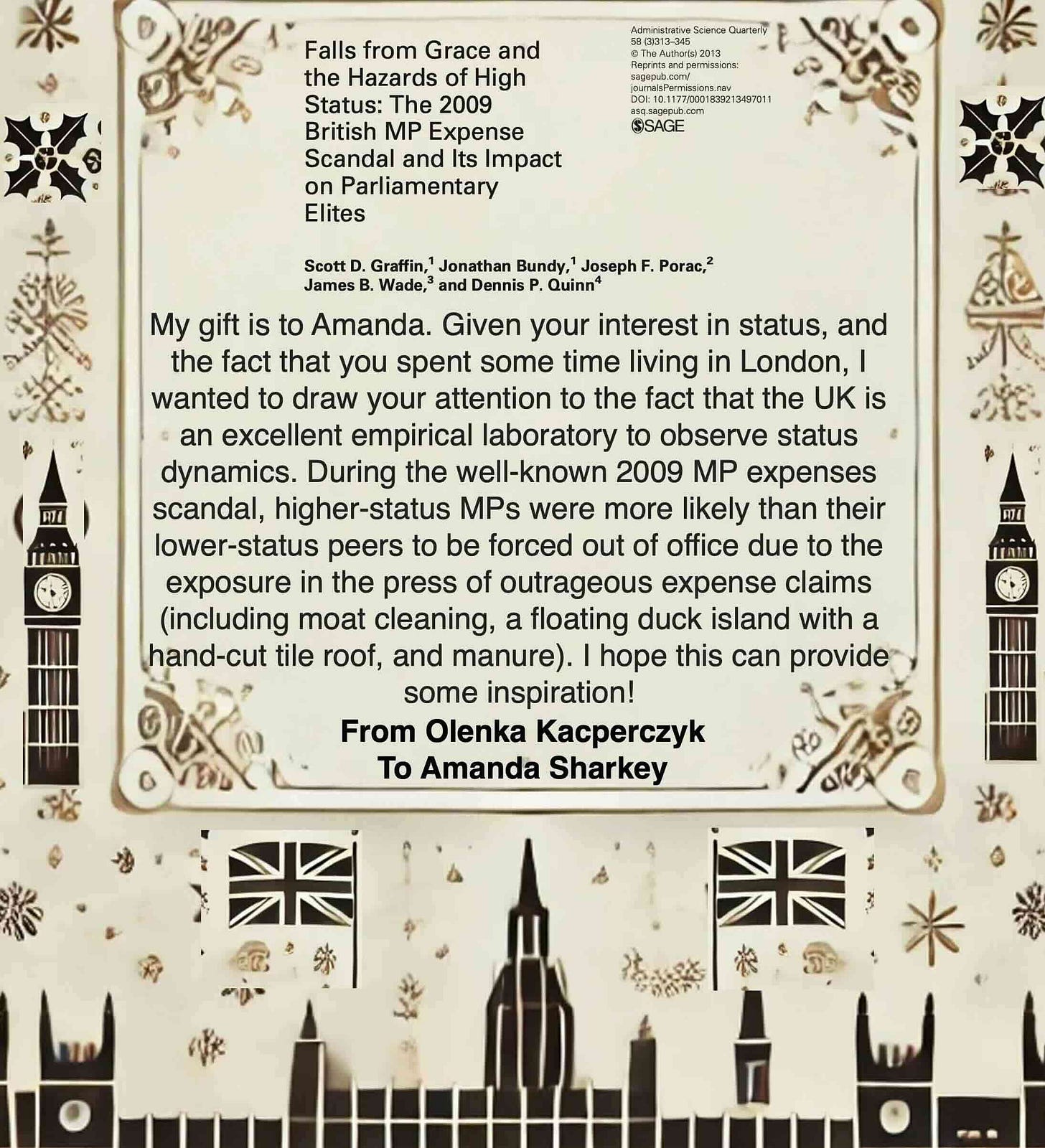

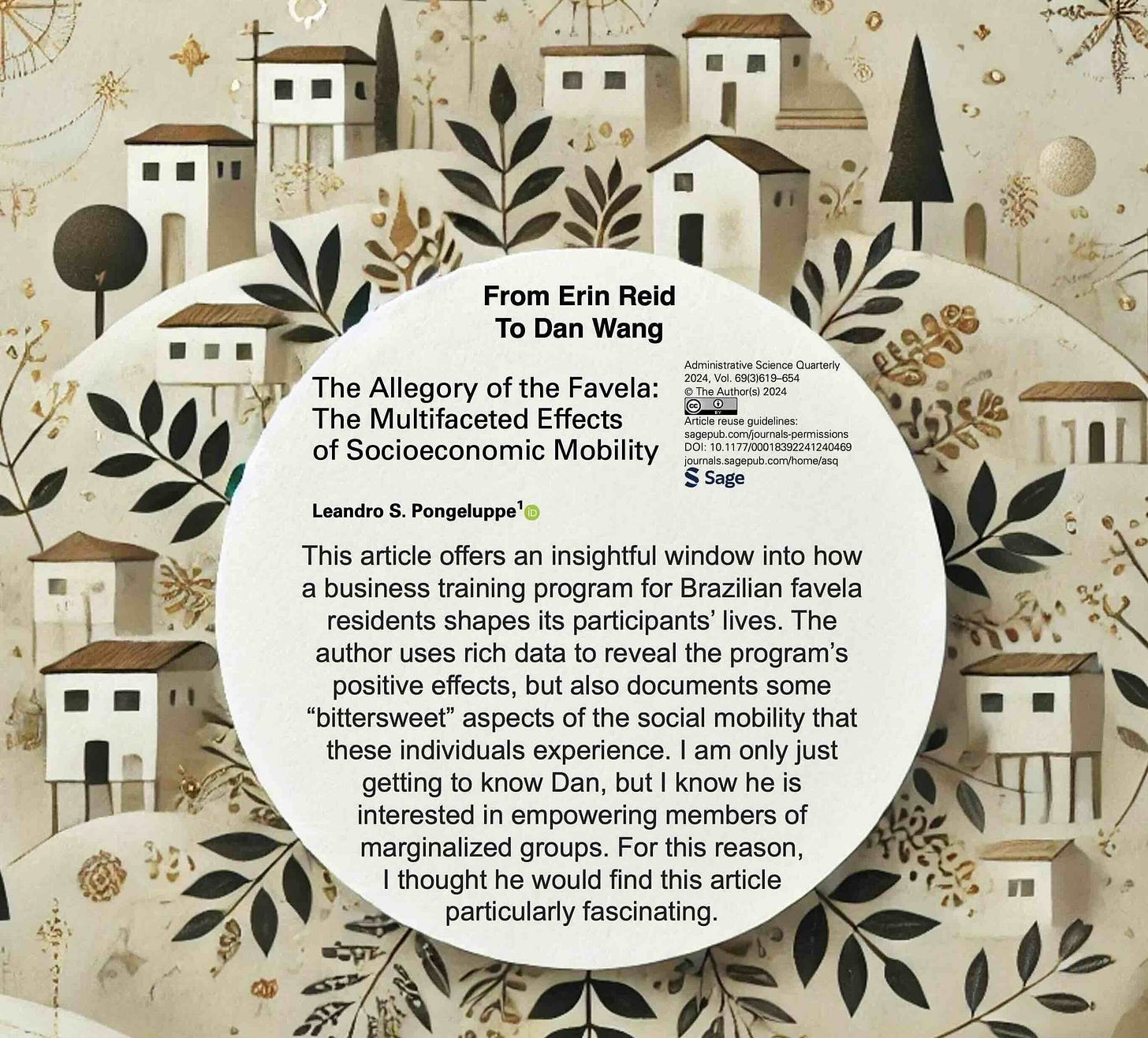


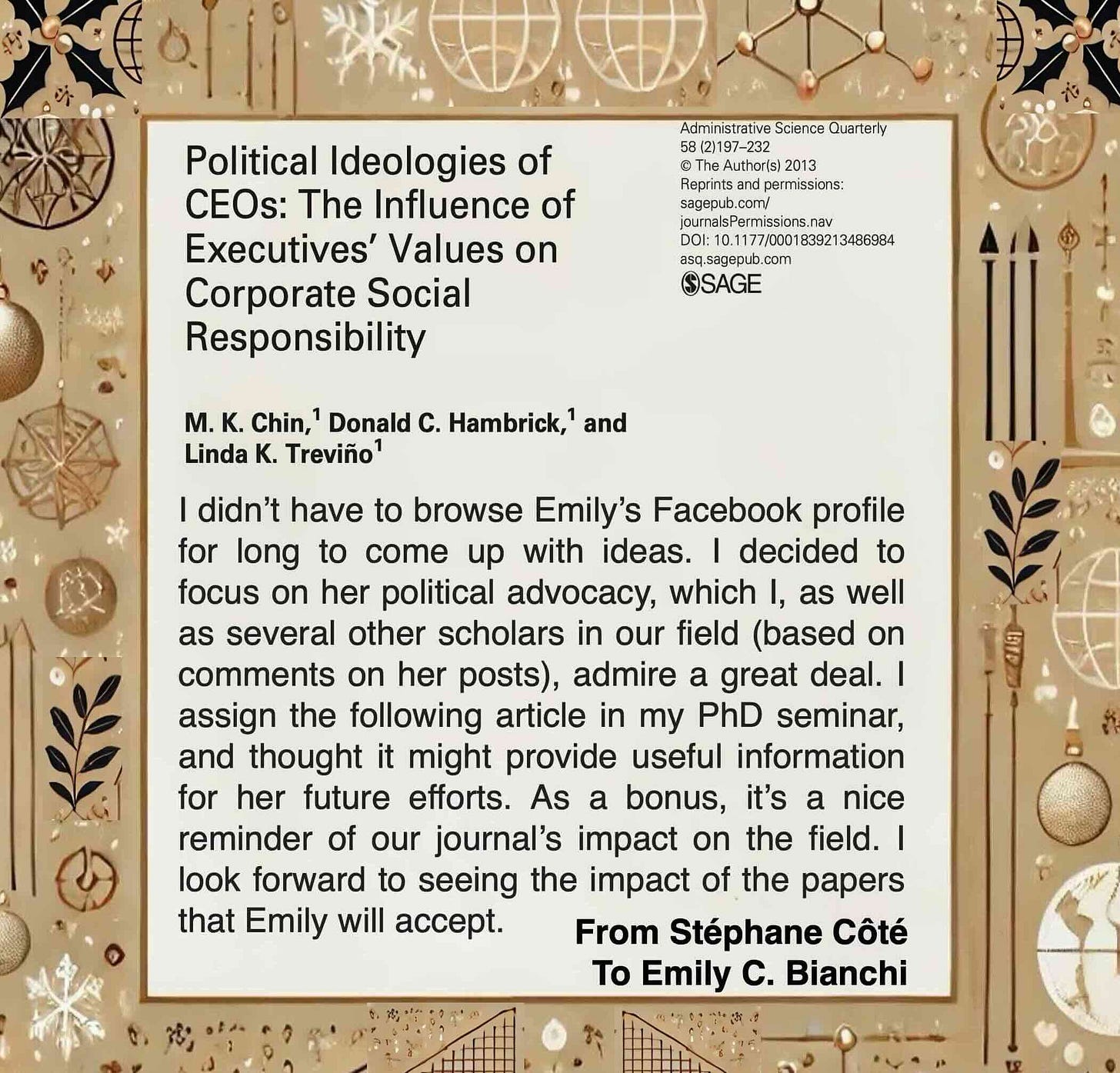


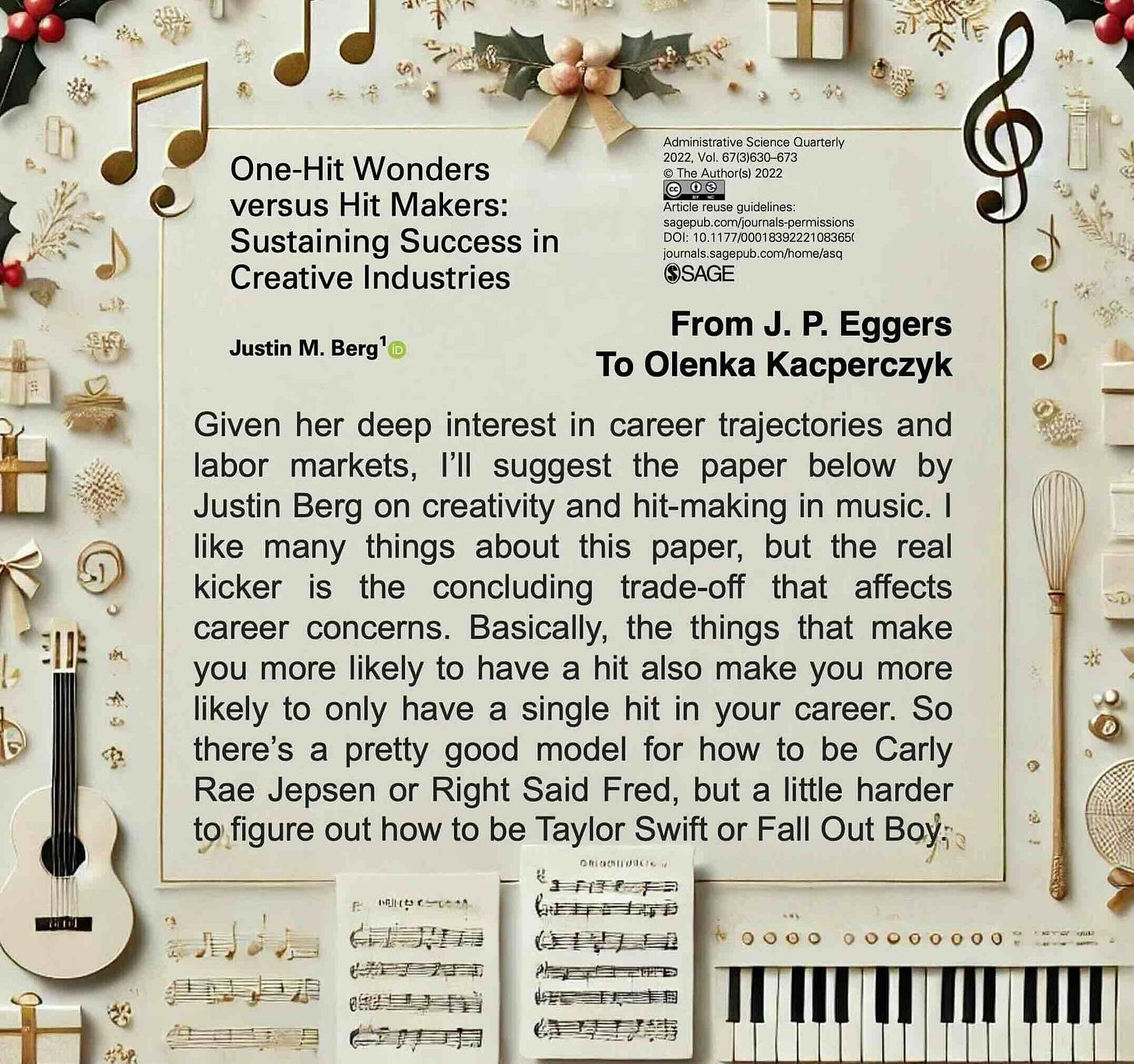
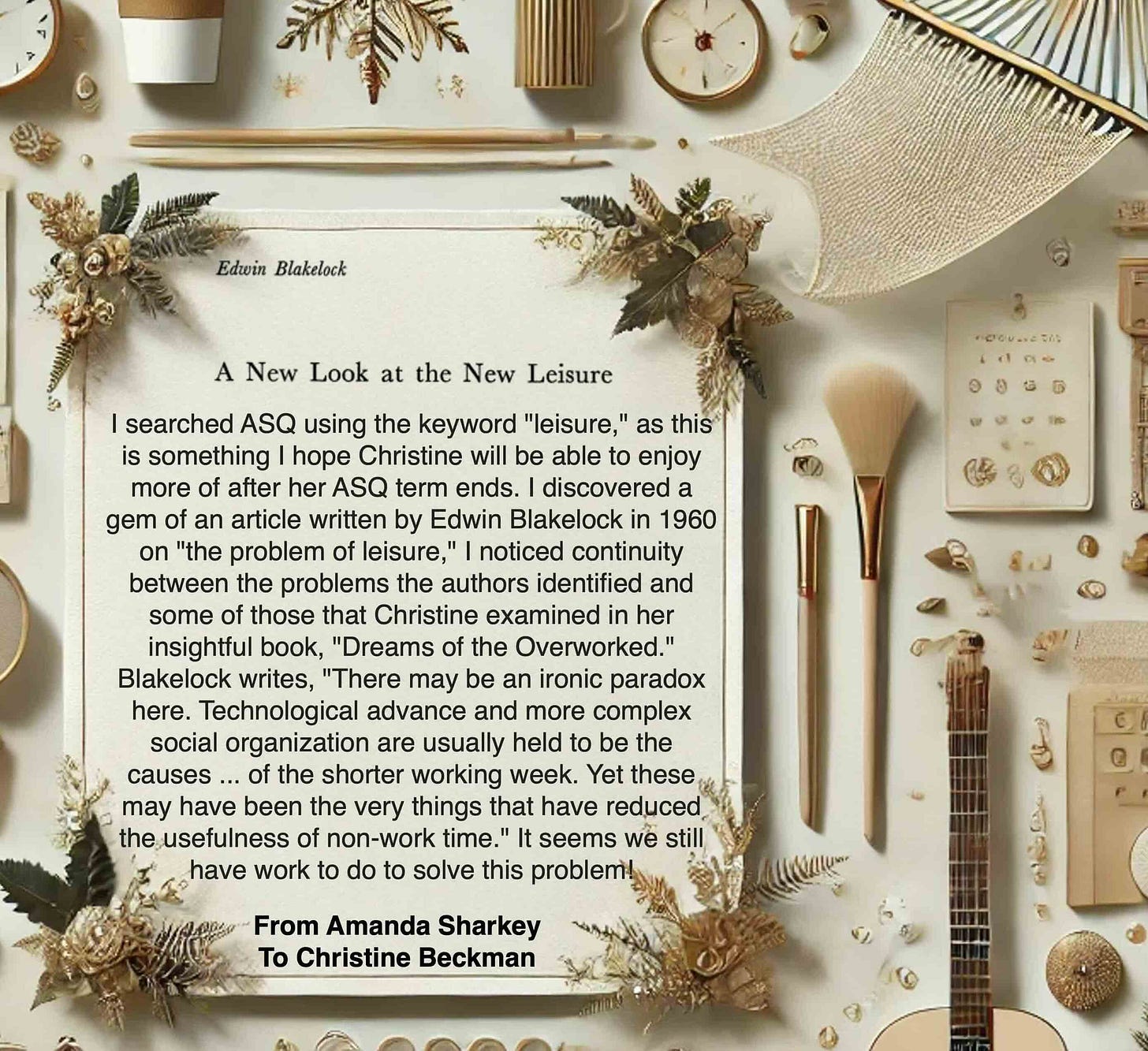


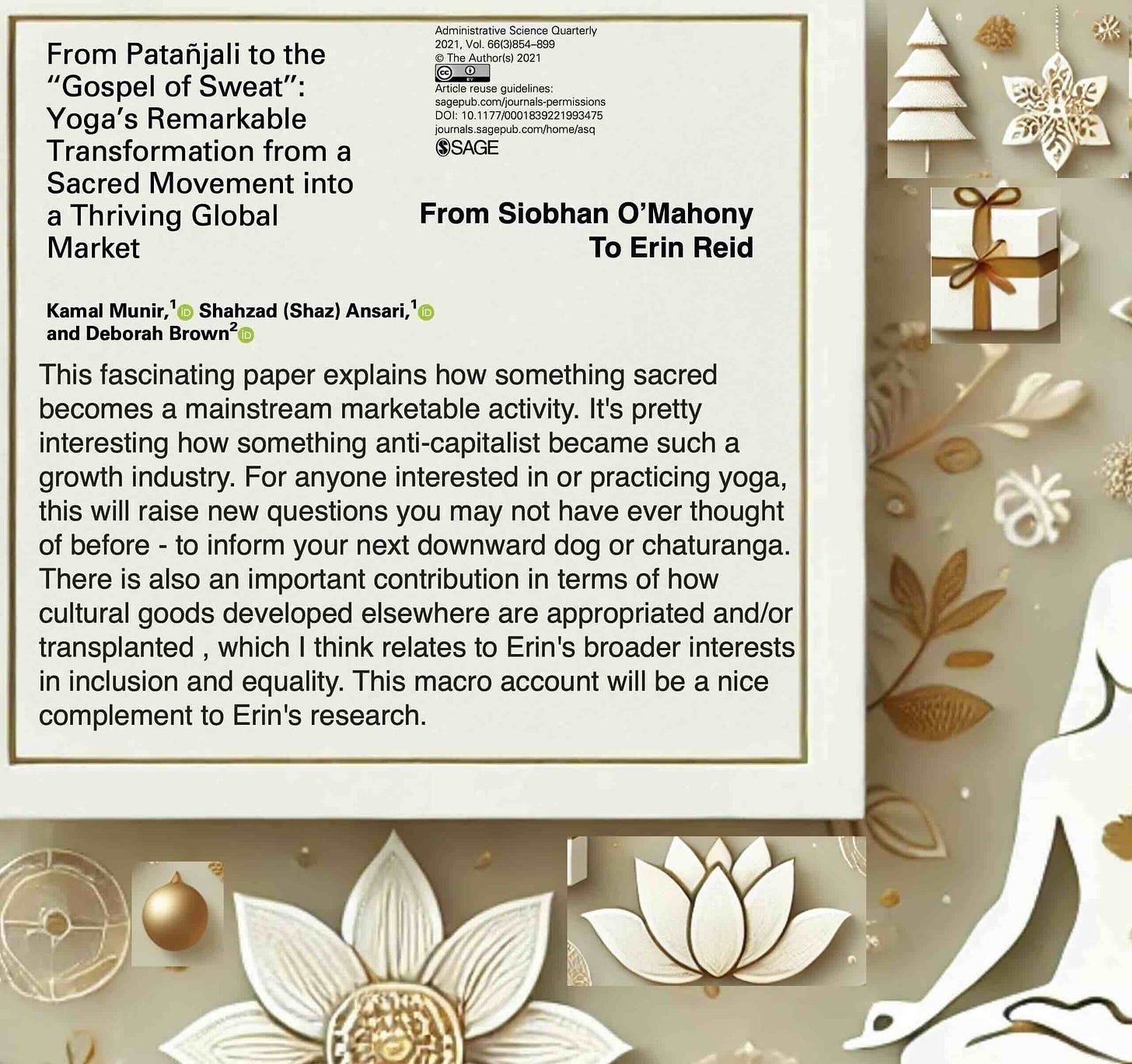


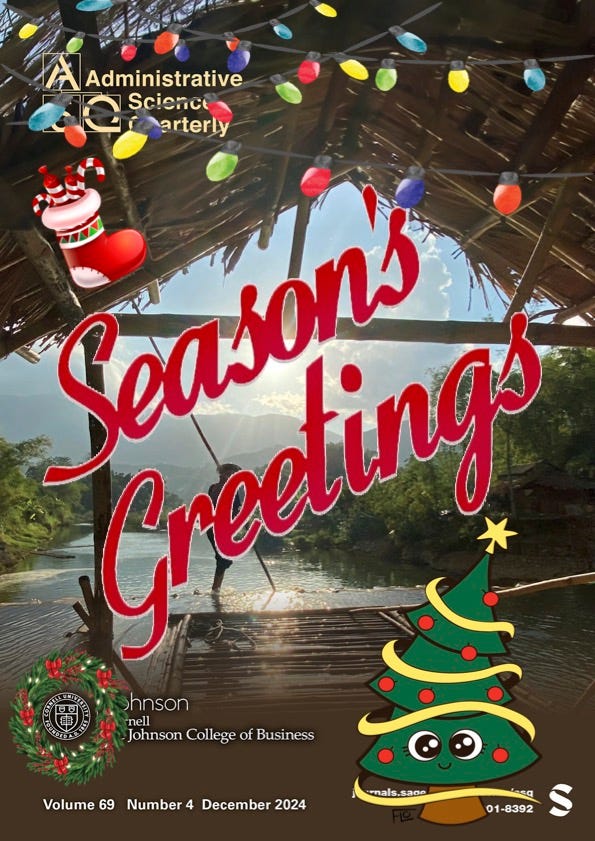
Cool idea -- going deep into the archives to find the good stuff. Who remembers all this? It's good to have personal reminders! Pro tip: there's some really interesting stuff from MY 'good old days' in ASQ from the 1950s -- check out Talcott Parsons' 2 part article that foreshadowed the basic ideas in institutional theory. Although often seen as the Scrooge who took the fun out of sociology, Parsons' articles show he could've played Santa at the Stanford school's Xmas celebration!
What a cleaver, thought provoking endeavor. Thanks.
Art Brief